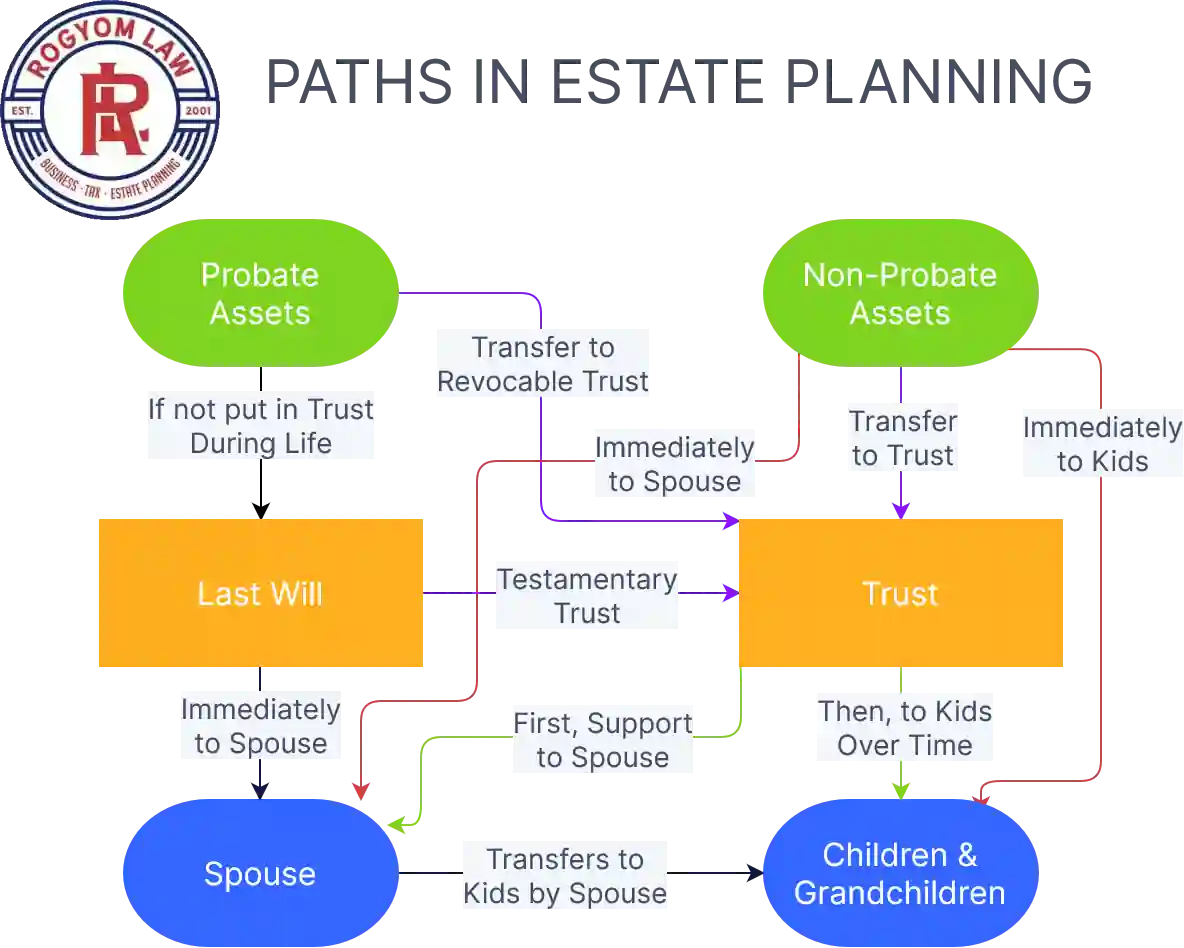Fascination About Estate Planning Attorney
Fascination About Estate Planning Attorney
Blog Article
Little Known Questions About Estate Planning Attorney.
Table of ContentsThe Facts About Estate Planning Attorney RevealedThings about Estate Planning AttorneyEstate Planning Attorney - The Facts
The various costs and prices for an estate strategy need to be reviewed with your attorney. There are several resources for estate planning supplied on the net or by numerous companies, and the reward to stay clear of attorneys' fees is frequently an encouraging variable.
It is also feasible that it will certainly be transformed as a result of the adjustment of management in 2020. The Illinois estate tax obligation threshold amount is $4,000,000 and an estate with even $1 over that quantity undergoes tax on the entire amount. An individual whose estate goes beyond these exemption or threshold levels requires to do some additional estate planning to minimize or remove fatality tax obligations.
Nonetheless, the Illinois inheritance tax limit is not mobile. Typically, a present of home from an individual to his/her partner that is an U.S. resident is exempt to a present tax obligation or an estate tax. Presents to any individual else is a taxable gift, yet undergoes an annual exemption (gone over listed below) and the same lifetime exemption when it comes to federal estate tax obligation.
Not known Incorrect Statements About Estate Planning Attorney
Some estate strategies might include lifetime gifts. In 2020, a person can quit to $15,000 a year to anyone without a gift tax obligation. In enhancement, under particular scenarios, an individual can make gifts for medical expenses and tuition expenditures over the $15,000 a year restriction if the clinical payments and tuition repayments were made straight to the clinical provider or the education and learning supplier.
Each joint tenant, no matter of which one acquired or originally had the building, has the right to use the jointly possessed home. When 2 individuals own property in joint tenancy and one of them dies, the survivor becomes the 100 percent proprietor of that property and the deceased joint tenant's rate of interest terminates (Estate Get More Info Planning Attorney).
When a tenant-in-common passes away, his or her interest passes to his or her estate and not to the surviving co-tenant. The home passes, instead, as component of the estate to the heirs, or the recipients under a will.
Estate Planning Attorney Fundamentals Explained

At the fatality of the owner, the assets in the account are transferred to the assigned beneficiary. Illinois has recently adopted a statute that permits certain real estate to be transferred on death through this link a transfer on fatality instrument.
The recipient of the transfer on death instrument has no interest in the realty until the fatality of the owner. All joint tenants must accept the sale or mortgage of the residential property. Any type of one joint occupant may take out all or a part of the funds in a joint checking account.
Estate, gift, or earnings tax obligations may be affected. Joint occupancy may have other consequences. For instance: (1) if home of any kind is kept in joint occupancy with a family member who receives well-being or various other benefits (such as social safety and security benefits) the relative's privilege to these advantages may be jeopardized; (2) if you position your home in joint tenancy, you might lose your right to useful elderly person property tax treatment; and (3) if you produce a joint tenancy with a child (or any person else) the youngster's lenders might seek to gather your youngster's financial debt from the residential property or from the earnings of a judicial sale.
Nonetheless, joint occupancies are not a straightforward solution to estate problems but can, as a matter of fact, develop problems where none existed. The costs of preparing a will, tax planning, and probate may be of little significance compared to the unintentional issues that can develop from utilizing joint tenancies indiscriminately. For a full description of the advantages and drawbacks of joint tenancy in your certain situation, you ought to seek advice from a lawyer
Report this page